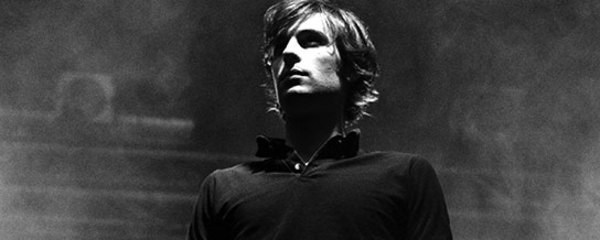Turzi: Beyond Psychedelia
Rather than relying on endless guitar squeals and 15-minute feedback treks, the newest brand of […]
Turzi: Beyond Psychedelia
Rather than relying on endless guitar squeals and 15-minute feedback treks, the newest brand of […]

Rather than relying on endless guitar squeals and 15-minute feedback treks, the newest brand of French psych producers, including 26-year-old Romain Turzi, tend to employ rock’s subtler elements for their sonic attacks: the cinematic scores of Air; Krautrock’s spaciousness; emotional bits from drug-addled pop. But while Turzi and his band Reich IV grew up on a healthy diet of Dinosaur Jr., My Bloody Valentine, and, um, Steve Reich, Turzi’s debut LP, A (Kemado), manages to rekindle his forebears’ energy without overdoing their influence.
“There is something unsurprising about pop music. The listener knows what’s coming when he hears the first bars of a song. I want him to be surprised,” Turzi writes via email. “The way I see it, music should act like a drug, whether you’ve experienced it or not. By listening to Turzi, your mind should elevate and your body should react in a positive or negative way.”
Those reactions might be spurred by Turzi’s haunting vocal chants, borderline punk-guitar progressions, and the recognizable modulation of modified synths. “I like things to be played on analog equipment–you can feel the personality and the response of each machine because of its defaults and appearance,” says Turzi. “I always pass guitars and organs through monophonic analog synthesizers and tons of echoes and reverb to personalize [their] sound.”
Turzi isn’t alone in the analog revolution. In addition to A, the psych warrior compiled a bundle of similar tracks from fellow French tripsters like Sebastian Tellier, Juan Tripp, and Kill for Total Peace on Voyage: Facing the History of French Modern Psychedelic Music, a free download for those who purchase A. “In a way, we feel close to the German ’70s approach: ‘Everything has been done overseas. Let’s try our own new thing,’” he offers. In that respect, tracks like A’s “Acid Taste” and “Are You Thinking About Jesus?” function on hypnotic, layered synth lines, but with build-ups that sound more at home in an underground spiritual refuge than any strobe-lit venue. Sound philosophical? It is. “If psychedelic music is about getting closer to beyond, let’s just bring the beyond into our music,” says Turzi.

